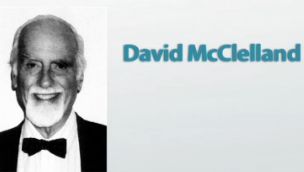Acquired Needs Theory: Need for Achievement, Power & Affiliation - Answers
The answers are in BOLD below.
NOTE: The transcript from the video is listed below the quiz for your reference.
1. Which of these needs is greatest for those individuals who have a strong desire to excel?
- need for achievement
- need for power
- need for affiliation
- need for affiliation
- need for self actualization
2. Which of these needs describes those who seek agreement and compliance?
- need for achievement
- need for power
- need for affiliation
- need for affiliation
- need for self actualization
3. Being liked by others is the main goal of people with which of these needs?
- need for achievement
- need for power
- need for affiliation
- need for affiliation
- need for self actualization
4. Which of these individuals is attributed as having developed the Acquired Needs Theory?
- David McClelland
- David Copperfield
- Abraham Maslow
- Douglas McGregor
- Clayton Alderfer
5. Which of these theories is based on the premise that one's needs are acquired over time as a result of their experiences and include the needs of achievement, power, and affiliation?
- McClelland's Attributed Needs Theory
- Maslow's Hierarchy of Needs Theory
- Alderfer's ERG Theory
- McClelland's Acquired Needs Theory
- Herzberg's Two Factor Theory
Do you act out of a need for achievement, power or affiliation? This lesson describes the acquired needs theory and how one of the three types of needs affect us more than the others.
Acquired Needs Theory
David McClelland proposed that one's needs are acquired over time as a result of their experiences - a notion that soon turned into what is now known as the acquired needs theory. As McClelland studied the needs of various individuals, he was able to classify them as either being achievement-, power- or affiliation-based. That is, every person holds an aspiration for achievement, power or affiliation. Interestingly, each person has a tendency to be motivated by one of these needs more so than by the other two. Consequently, a person's behavior and performance at work is strongly influenced by the most meaningful of the three needs.
 |
Need for Achievement
The need for achievement is greatest for those individuals who have a strong desire to excel. Achievers seek neither power nor approval; rather, their only focus is on success. Achievers prefer work that has a moderate chance for success (about 50/50) and tend to avoid situations that are low-risk and those that are high-risk. Low-risk situations are avoided because of the presumed ease of accomplishment related to low-risk activities and the belief that things which come easy are not a true measure of success. High-risk situations are avoided by achievers because of the fear that success might be more related to luck than actual effort. Achievers need to be able to see the correlation between the level of effort they exert and the success that results.
 |
Need for Power
Those with a high need for power seek agreement and compliance; approval and recognition are not of their concern. Managers of power-seekers should provide them with an opportunity to manage others. However, they must pay special attention to the type of power-seeker they are. Power-seekers who are after personal power have a strong desire to control others or cause them to behave in a way that is consistent with the power-seeker's wishes. For example, Shawn has a high need for personal power and often manipulates his employees to do his work for him. He later takes credit for it.
 |
Need for Affiliation
Being liked by others is the main goal of people with a high need for affiliation. Affiliation-seekers are more interested in approval rather than recognition or power and will consequently act in ways in which they believe will earn the endorsement of others. They also tend to avoid conflict with others at all costs. Affiliation-seekers prefer to work in groups and happily conform to the norms of the group. They thrive in situations where they can interact with others and have opportunities to build close interpersonal relationships. Therefore, managers of affiliation-seekers should provide them with the opportunities to work in a cooperative environment.
 |
Lesson Summary
Let's review. David McClelland proposed that one's needs are acquired over time as a result of their experiences - a notion that soon turned into what is now known as acquired needs theory. As McClelland studied the needs of various individuals, he was able to classify them as being either achievement-, power- or affiliation-based.
The need for achievement is greatest for those individuals who have a strong desire to excel. Achievers prefer work that has a moderate chance for success (about 50/50) and tend to avoid situations that are low-risk and those that are high-risk. Achievers also like to work alone or with other achievers. Managers of achievers should work to provide them with challenging projects filled with attainable goals.
Those with a high need for power seek agreement and compliance. Managers of power-seekers should provide them with the opportunity to manage others. However, they should pay special attention to the type of power-seeker they are. Power-seekers who are after personal power have a strong desire to control others. On the other hand, those power-seekers who need institutional or social power use their power to help mobilize efforts aimed at organizational goals.
Being liked by others is the main goal of people with a high need for affiliation. Affiliation-seekers prefer to work in groups and happily conform to the norms of the group. They thrive in situations where they can interact with others and have opportunities to build close, harmonious interpersonal relationships. Affiliation-seekers often make personal sacrifices for others often at their own expense. Therefore, managers of affiliation seekers should provide them with opportunities to work in a cooperative